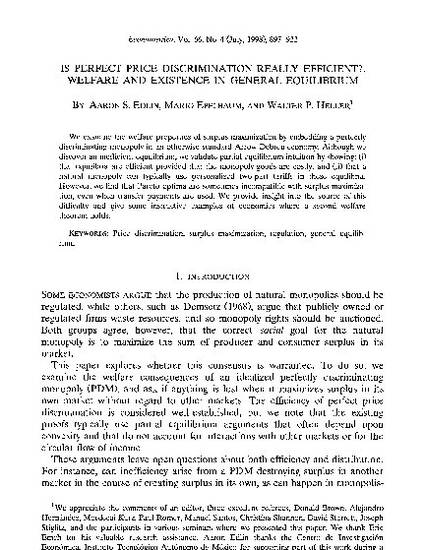
Article
Is Perfect Price Discrimination Really Efficient? Welfare and Existence in General Equilibrium
Econometrica
(1998)
Abstract
We examine the welfare properties of surplus maximization by embedding a perfectly discriminating monopoly in an otherwise standard Arrow-Debreu economy. Although we discover an inefficient equilibrium, we validate that equilibria are efficient provided that the monopoly goods are costly, and (ii) that a natural monopoly can typically use personalized two-part tariffs in these equilibria. However, we find that Pareto optima are sometimes incompatible with surplus maximization, even when transfer payments are used. We provide insight into the source of this difficulty and give some instructive examples of economies where a second welfare theorem holds.
Disciplines
Publication Date
December, 1998
Citation Information
Aaron S. Edlin, Mario Epelbaum and Walter P. Heller. "Is Perfect Price Discrimination Really Efficient? Welfare and Existence in General Equilibrium" Econometrica Vol. 66 (1998) Available at: http://works.bepress.com/aaron_edlin/12/
